Keynotes
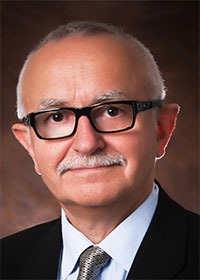 hidden Jacek Zurada Professor of ECE, University of Louisville, KY USA
hidden Jacek Zurada Professor of ECE, University of Louisville, KY USA
IEEE Life Fellow hidden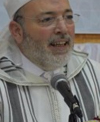 hidden Dr. Driss Fassi EL Fihri Doctor of Theology and Vice President of Al Qarawiyyin University, Morocco hidden
hidden Dr. Driss Fassi EL Fihri Doctor of Theology and Vice President of Al Qarawiyyin University, Morocco hidden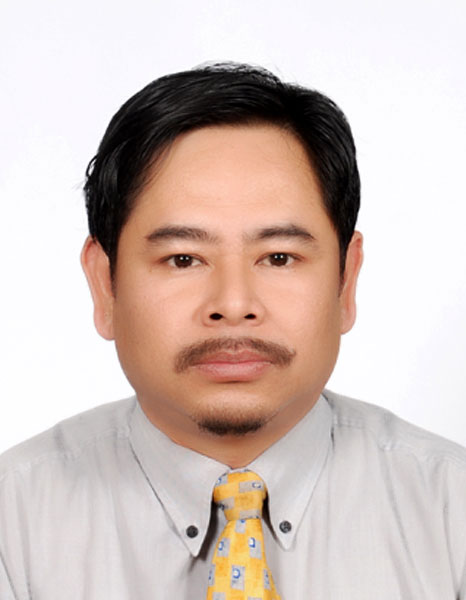 hidden Fakhrul Hazman Yusoff Universiti Teknology MARA (UiTM) (Malaysia)
hidden Fakhrul Hazman Yusoff Universiti Teknology MARA (UiTM) (Malaysia)
Faculty of Computer and Mathematical Science (FSKM) hidden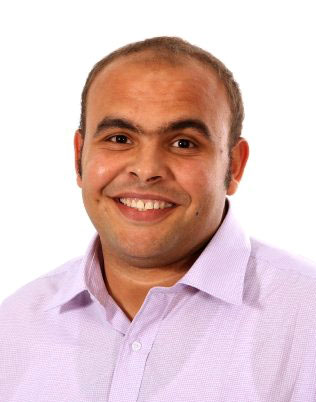 hidden Sherif Sakr Department of Health Informatics
hidden Sherif Sakr Department of Health Informatics
College of Public Health and Health Informatics King Saud bin Abdulaziz University for Health Sciences
Riyadh, Saudi Arabia hidden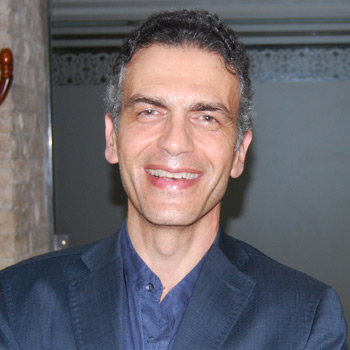 hidden Vito Pirelli ILP-CNR, Area della Ricerca CNR, Pisa, Italy hidden
hidden Vito Pirelli ILP-CNR, Area della Ricerca CNR, Pisa, Italy hidden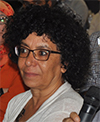 hidden Ouafae Nahli ILP-CNR, Area della Ricerca CNR, Pisa, Italy hidden
hidden Ouafae Nahli ILP-CNR, Area della Ricerca CNR, Pisa, Italy hidden
Professor Jacek M. Zurada Computational Intelligence Laboratory Electrical and Computer Engineering University of Louisville Louisville, IEEE Life Fellow, KY, USA
short biography:
Since 1989 he has been a Professor with the Electrical and Computer Engineering Department at the University of Louisville, Kentucky.
He has published over 400 journal and conference papers in neural networks, computational intelligence, data mining, image processing and VLSI circuits.
He also has authored or co-authored three books, including the text Introduction to Artificial Neural Systems, co-edited the volumes Computational Intelligence: Imitating Life, Knowledge-Based Neurocomputing, and co-edited fifteen volumes in Springer Lecture Notes on Computer Science.
Dr. Zurada was an Associate Editor of IEEE Transactions on Circuits and Systems, Neural Networks, Part I and Part II, and served on the Editorial Board of the Proceedings of IEEE. From 1998 to 2003 he was the Editor-in-Chief of IEEE Transactions on Neural Networks.
Dr. Zurada has served the profession and the IEEE in various elected capacities and he has received a number of awards for distinction in research, teaching, and service.
Abstract: Computationnel Intelligence
The written cultural heritage, communication across space and transmission through time of customs, culture, beliefs and laws.
short biography:
Dr Driss Fassi Fihri is Professor and vice-President of Al-Qarawiyin University in charge of Education. He is also the Director of the Department of Graduate Studies in the terminology and rules of Sharia in the Faculty of Sharia in Fez, and the preacher (Imam) of Al-Qarawiyin Mosque. He has published many books, like The concept of unanimity for Imam Shafi'i: a terminology study, the concept of peace and the fundamentals of international law in Islamic law, rules of jurisprudence of tourism in Islam, the impact of the concept of the work of the people of al Madinah in the differences between Imams Malik and Shafi'i.
Abstract
Digitalization of Arabic Ancient Manuscripts: Challenges and opportunities
Dr. Fakhrul Hazman Yusoff is a senior lecturer in Faculty of Computer and Mathematical Science (FSKM), Universiti Teknology MARA (UiTM).
short biography:
He graduated with B.Sc. (Management – Information System) degree from Case Western Reserve University, Cleveland Ohio, USA in 1998. He earned his M.Sc. (Information Technology) degree from Universiti Putra Malaysia, Malaysia in 2001 and obtained his Ph. D in Computer Graphics in 2010 also from Universiti Putra Malaysia, Malaysia. His research interest includes computer graphics, game & gamification & visualization.
Dr. Fakhrul leads an academic-based research entity known as Spatial Visual Analytics Group (SVAG). Among the projects that he initiated include:
- Design Model of Augmented Reality-Based Gamification in Learning Environment,
- Data-Driven Infographics,
- Animated Display for Data Driven Infographics,
- Developing Partial Voice Recognition-based Context-Awareness of Humanoid in the Rehabilitation of Children with Autism,
- Modeling Jagged-like Surface Reconstruction via Zero-Order Continuity Parametric-Based Algorithm,
- Feasibility Study of Large Screen TV for Teaching and Learning,
- Sound Visualization as a tool for anxiety alleviation during Waiting Room environment,
- Emotional Conditioning Sound-Induced Visualization,
- Non-Planar Parametric Visualization,
- Face Recognition for Orang Asli by Using Backpropagation Neural Network,
- Learning French via Tablet,
- Large Screen Non-Planar Projection System, and
- Security Tracking Mobile Apps and Feasibility Study of Virtual Infrastructure-based Smart Classroom and Feasibility Study of Large Screen TV for Teaching and Learning.
Abstract : Adaptation of Enjoyment in Learning through Gamification
Enjoyment is one of the most prominent values in learning, and is among the most desired experiential qualities needed to satisfy users. Myriad of approaches have been implemented and researched for bringing enjoyment in the learning process, and one of them is an emergence of a new approach called gamification. It emphasizes the use of points, badges, and other virtualrewards as well as the use of dynamic and aesthetic elements brought by digital games to be used in the non-entertainment area. Gamification has potential in many fields. While the gamification concept has been vastly explored for user engagement towards certain interventions or behavior, it is no doubt that gamification also promotes the effects of enjoyment to the users, a topic less discussed in previous studies and should be further explored.
Dr. Sherif Sakr is currently a Professor of Computer Science at King Saud bin Abdulaziz University for Health Sciences. He is also affiliated with The School of Computer Science and Engineering (CSE) at University of New South Wales (UNSW Australia) and Data61/CSIRO (formerly NICTA).
short biography:
He received his PhD degree in Computer and Information Science from Konstanz University, Germany in 2007. He received his BSc and MSc degrees in Computer Science from the Information Systems department at the Faculty of Computers and Information in Cairo University, Egypt, in 2000 and 2003 respectively. In 2008 and 2009, Sherif held an Adjunct Lecturer position at the Department of Computing of Macquarie University, Australia. Dr. Sakr held a visiting Researcher/Professor appointments in international reputable research and academic institutes including Microsoft Research, Redmond, USA (2011), Nokia Bell Labs, Ireland - Formerly Alcatel-Lucent Bell Labs (2012), Humboldt-Universität zu Berlin, Germany (2015), University of Zurich, Switzerland (2016), Technical University of Dresden, Germany (2016). In 2013, Sherif has been awarded the Stanford Innovation and Entrepreneurship Certificate. Dr. Sakr's research interest is data and information management in general, particularly in big data processing systems, big data analytics, data science and big data management in cloud computing platforms. He is an associate editor of the cluster computing journal and Transactions on Large-Scale Data and Knowledge-Centered Systems (TLDKS). He is also an editorial board member of many reputable international journals. Dr. Sakr is an IEEE Senior Member.
Abstract : Big Data 2.0 Processing Engines
For a decade, the MapReduce framework, and its open source realization, Hadoop, has emerged as a highly successful framework that has created a lot of momentum such that it has become the defacto standard of big data processing platforms. However, in recent years, academia and industry have started to recognize the limitations of the Hadoop framework in several application domains and big data processing scenarios such as large scale processing of structured data, graph data and streaming data. Thus, we have witnessed an unprecedented interest to tackle these challenges with new solutions which constituted a new wave of mostly domain-specific, optimized big data processing engines. In this talk, we refer to this new wave of systems as “Big Data 2.0 processing systems”. We provide a taxonomy and analysis of the state-of-the-art in this domain. In addition, we identify a set of the current open research challenges and discuss some promising directions for future research.
European Chair of "NetWordS: the European Network on Word Structure", European Science Foundation Research Networking Programme.
short biography:
Member of the Editorial Board of “Lingue e Linguaggio”, Member of the Editorial Board of "Linguistica Computazionale", Member of the Scientific Board of the Centre for Post-doc Research and Education “The languages of Europe: Typology, History and Sociolinguistics” (LETISS), Member of the Scientific Committee of ILC, Head of the CNR Dylan Lab, Head of the CNR strategic project “Bio-computational models of language and cognition”.
Abstract: Machine learning and neurolinguistic issues in language processing
Over the last decades, a growing body of evidence on the mechanisms governing lexical storage, access, acquisition and processing has questioned traditional models of language architecture and word usage based on the hypothesis of a direct correspondence between modular components of grammar competence (lexicon vs. rules), processing correlates (memory vs. computation) and neuro-anatomical localisations (prefrontal vs. temporo-parietal perisylvian areas of the left hemisphere). A new view appears to support a considerably more distributed and integrative picture, whereby words in the mental lexicon are emergent properties of the functional interaction between different brain regions. In the talk I will explore the implications of these recent acquisitions for issues of machine language learning and language architecture.
Towards a Muslim Arab Ontology of Culture.
short biography:
Dr Ouafae Nahli is a researcher at ILC of the CNR Pisa, Italy. She has been involved in many international projects and has co-authored many publications related to the Standard Arabic natural language processing.
Abstract
Arabic language alignment with English ontologies : Some ontological reflections
